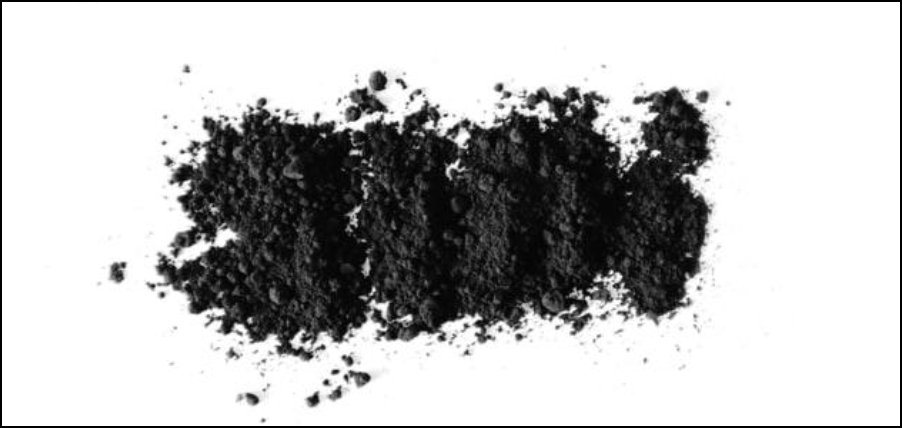Once, the activated carbon or charcoal was considered to be a universal antidote. Today, it remains to be promoted as a powerful natural treatment. It has a variety of considered benefits, ranging from water purification to whitening teeth and lowering cholesterol.
What Is Activated Carbon?
Activated carbon (also known as activated charcoal) is a refined black powder made out of peat, petroleum coke, bone char, coal, coconut shells, sawdust or olive pits. It is known to be highly useful absorbent.
Because of its high surface area, neat structure, and high level of reactive surface, activated carbon is used to dechlorinate, purify, deodorize and decolorize both vapor and liquid applications.
Currently, lots of activated car-bon producers, such as Puragen, recognize that activated car-bon is prudent adsorbent for many industries, and is utilized for water purification, automotive applications, cosmetology, food grade products, petroleum, industrial gas purification, and noble metal recovery (primarily for gold). Activated carbon manufacturers are aware of its broad usage, and that is why it is mass-produced.
How Does Activated Carbon Work?

Activated carbon works by entrapping chemicals and toxins in the gut, stopping their absorption. The carbon’s penetrable texture possesses a negative electrical charge, and due to that it attracts positively charged molecules, like gases and toxins. That helps it to trap toxins and chemicals in the gut.
Since our bodies don’t absorb activated car-bon, it is able to carry the toxins on its surface out of our bodies. As a result of its toxin-binding characteristics, activated carbon has plenty of medical uses as well.
For example, activated carbon is frequently used in cases of poisoning. That is because it can bind a wide range of drugs, minimizing their effects. In humans, activated car-bon has been used as a poison remedy since the 18th century. It can be used to cure prescription drug overdoses, and overdoses of non-prescription medications like acetaminophen, sedatives, and aspirin.
Nevertheless, activated carbon shouldn’t be confused with carbon briquettes that we use for lighting barbecues. While both are made from the same base material, carbon briquettes have not been activated at high temperatures. Furthermore, they comprise other substances that are poisonous to humans.
In Humans, Activated Carbon Promotes Kidney Function
Activated carbon promotes kidney function by minimizing the number of waste materials that the kidneys need to filter. It is especially beneficial in patients suffering from chronic kidney disease, which is a condition where kidneys can no longer appropriately filter waste materials.
Our kidneys are ordinarily well equipped to filter our blood without any additional support. However, individuals who suffer from chronic kidney disease normally have a difficult time removing the toxins from their bodies.
Activated car-bon might have the capability to bind the toxins, helping the body to eliminate them easier. The waste materials pass from the bloodstream into the gut through a procedure called diffusion. In humans, activated car-bon has been demonstrated to help enhance kidney function in people suffering from chronic kidney disease.
Other Known Benefits of Activated Carbon
Activated car-bon is also a well-known home medicine with different purposes, although it’s significant to note that not all of those are proven by science. Anyhow, its most distinguished home uses are:
• Gas reduction: Some case studies show that activated carbon helps reduce gas production after consumption of a gas-producing food. It also helps improve the odor of gas.
• Water filtration: Activated carbon is a renowned way to minimize fluoride content and heavy metal in water. However, it is not very efficient for removing bacteria, viruses, or hard minerals from the water.
• Skin treatment: Applying activated carbon to your skin is solicited as an efficient treatment for acne and insect bites. Plenty of young adults are using it for making face masks at home, instead of buying them from drug stores.

• Hangover prevention: Activated charcoal is occasionally used to treat hangovers. While consuming it may reduce blood alcohol levels when combined with alcohol, its effects on hangovers haven’t been studied.
• Tooth whitening: The use of activated carbon for brushing teeth is said to whiten them. That is accomplished by absorbing plaque and the other staining compounds.
• Cholesterol levels reduction: Activated carbon might also help in minimizing cholesterol levels. That is because it is able to bind cholesterol and cholesterol-comprising bile acid sequestrants in the gut, preventing the body from absorbing them.
Final Words
Activated carbon is a substance with a variety of uses across many industry sectors. It may also be used to lower cholesterol, treat poisoning, reduce gas, and improve kidney function. Thanks to its amazing characteristics it’s widely used nowadays, and it provides great benefits to mankind.
For More Information: Click Here


















